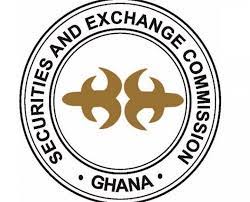By Enoch AKUFFU-DJOBI (PhD)
Banks are the lifeblood of any economy, managing vast sums of money, facilitating the transfer of funds between savers and borrowers, investment, and driving economic growth.
But in recent years, a series of scandals, fraud cases, and collapses in both global and African banking sectors have exposed one troubling truth: internal audits are often not as effective as they should be.
This raises a crucial question: Is the internal audit function in banks truly serving as the independent, objective watchdog it is meant to be—or has it become a mere box-ticking exercise? The answer lies in how seriously banks invest in, empower, and act upon their internal audit systems.
What is the problem?
Banks can fail, just like other firms. But their failure can have broader ramifications—hurting customers, other banks, the community, and the market as a whole.
Customer deposits can be frozen, loan relationships can break down, and lines of credit that businesses draw on to make payrolls or pay suppliers may not be renewed. In addition, one bank failure can lead to other bank failures.
Internal audit is meant to be a safeguard within banks—monitoring operations, assessing risk, and ensuring regulatory compliance.
However, numerous high-profile banking scandals across the globe have exposed significant weaknesses in the effectiveness and independence of internal audit functions.
From the Wells Fargo fake accounts scandal in the U.S. to Wirecard’s accounting fraud in Germany, Punjab National Bank’s SWIFT fraud in India, and Danske Bank’s money laundering case in Estonia, internal auditors either missed clear warning signs or lacked the authority and resources to act on them.
These failures have led to billions in financial losses and damaged trust in the global banking system.
Common issues include a lack of independence, unqualified audit staff, limited scope, under-resourced audit teams, and failure to respond to red flags.
These cases show that internal audit often operates within a constrained environment where its ability to prevent or detect fraud is compromised.
To restore trust and reduce the risk of future scandals, there is a critical need to strengthen internal audit functions, improve their independence, and ensure they are empowered with the tools and authority to effectively oversee complex banking operations.
Why Internal Audit Matters
An effective internal audit function is meant to serve as an early warning system. It identifies weaknesses in risk management, internal controls, and compliance—before these turn into crises.
But when the audit function lacks independence, resources, or enforcement, banks become vulnerable to fraud, regulatory breaches, and reputational damage.
Case Study: Ghana – The Banking Sector Clean-Up (2017–2019)
Between 2017 and 2019, the Bank of Ghana revoked the licenses of nine commercial banks and dozens of financial institutions. Among them was Capital Bank, which collapsed due to mismanagement and misuse of liquidity support funds. Investigations revealed that internal audit units had failed to detect or report improper lending and unauthorized investments, or worse, were ignored by top executives.
A 2020 report by the Bank of Ghana noted that in many distressed banks, internal auditors lacked autonomy and their reports were either altered or not acted upon by management.
Some audit committees on the boards were inactive, further reducing oversight. This widespread audit failure led to a loss of over GHS 21 billion in taxpayer funds for recapitalization and cleanup.
Case Study: United States – Wells Fargo Fake Accounts Scandal
In the United States, the Wells Fargo scandal (2016) serves as a stark reminder of what happens when internal audit loses its voice. Over 3.5 million unauthorized accounts were opened by employees trying to meet aggressive sales targets.
Internal auditors reportedly raised red flags over these practices, but senior management downplayed or ignored the warnings.
A report by the U.S. Office of the Comptroller of the Currency (OCC) found that Wells Fargo’s internal audit function “lacked the authority and influence necessary to challenge and prevent misconduct.” This failure led to billions in fines, mass layoffs, and a major reputational crisis.
Common Weaknesses in Internal Audit Systems
Lack of Independence:
In many banks, internal auditors report to senior management instead of directly to the board, leading to conflicts of interest.
Under-Resourcing:
Audit teams often lack skilled personnel or digital tools to detect sophisticated fraud schemes.
Ignored Recommendations:
Audit findings are often not acted upon promptly—or at all. Without consequences, audit reports lose their power.
Cultural and Ethical Challenges:
Fear of retaliation or pressure from top executives may silence auditors, especially in family-owned or politically connected banks.
What Should Change?
To prevent future collapses, banks must strengthen internal audit by:
- Ensuring independence: Auditors should report to the board’s audit committee, not the CEO.
- Investing in capacity: Skilled, well-paid auditors with access to data analytics can uncover issues early.
- Enforcing accountability: Board members and executives should face consequences for ignoring audit red flags.
- Adopting a risk-based approach: Focus should be on high-risk areas like credit approval, cybersecurity, and procurement.
- Regular external reviews: Regulators should mandate independent reviews of internal audit performance.
Conclusion: Empower the Watchdogs
Whether in Ghana, the USA, or anywhere else, internal audit is a vital shield against mismanagement and fraud. But it only works if auditors are independent, empowered, and respected. Banks must stop viewing internal audit as a formality and start treating it as a strategic tool for long-term sustainability.
Without strong internal audit, the next banking failure may not be a question of if, but when.
Enoch is a Chartered Accountant / Certified Banker with a deep passion for accounting, banking, and governance. His expertise spans both education and practice reflecting a commitment to research and knowledge sharing. He can be reached via [email protected]). Contact: +233244201383.










